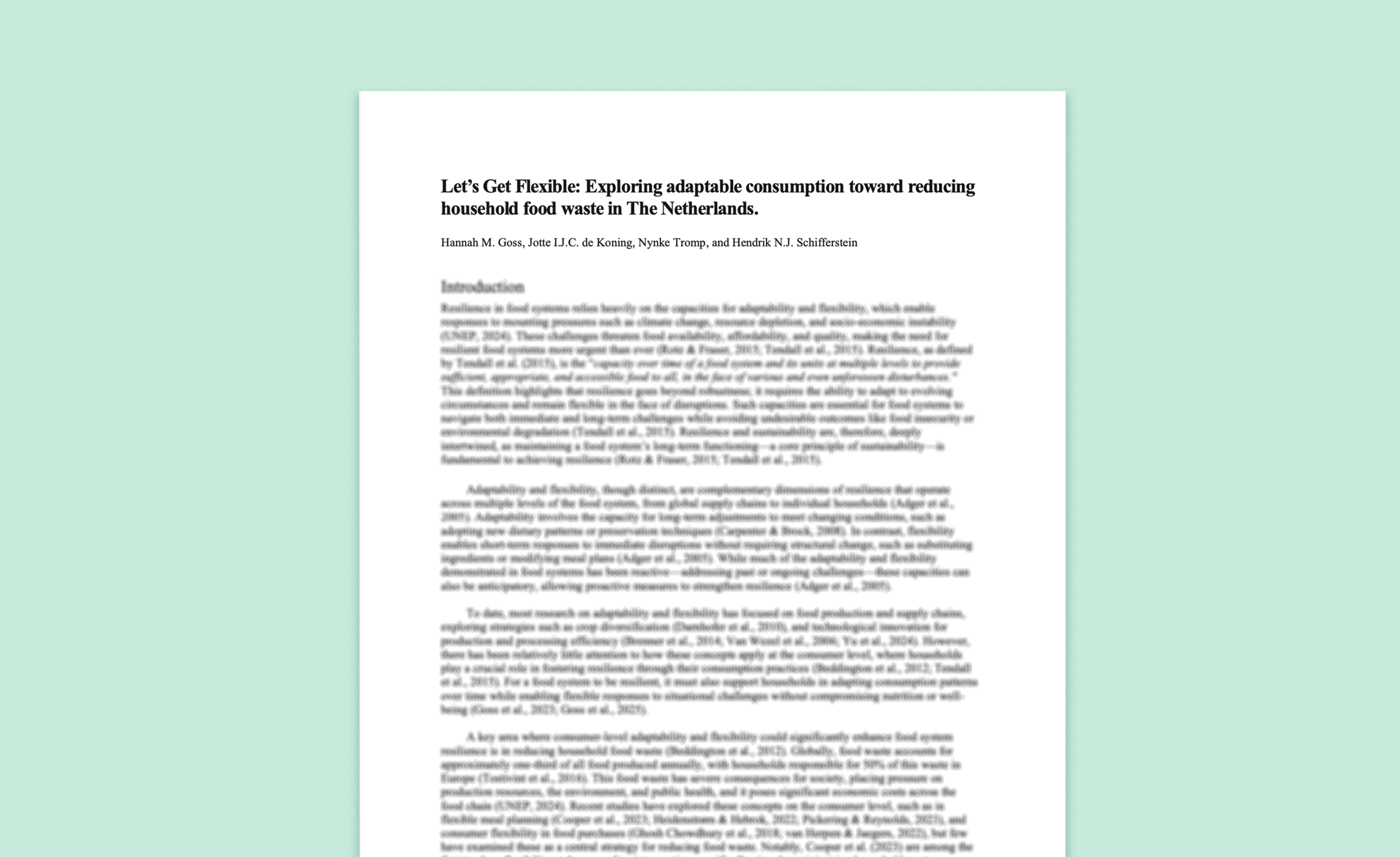Let’s Get Flexible: Exploring adaptable consumption toward reducing household food waste in The Netherlands
Written by Hannah Goss (me), Jotte de Koning, Nynke Tromp and Rick Schifferstein
In response to the pressing challenge of food waste, this study investigates adaptable consumption as a strategy for household food waste reduction. Adaptability of consumption serves resilience building within food systems. It empowers households to adjust food-related behaviours in response to changes in food availability, household needs, and other disruptions. Using cultural probes and semi-structured interviews with 11 Dutch households (43 participants), this study examines how households engage in adaptable consumption practices to minimise food waste. The findings highlight five opportunities for supporting consumers towards more adaptability: 1) supporting flexible meal moments, 2) reclaiming food edibility, 3) reintegrating food into routines, 4) integrating feedback loops, and 5) playing into life-changing moments. These opportunities represent moments in time, behavioural routines, or dynamics where food waste-reducing behaviours can be successfully introduced and fostered. For instance, the study demonstrates that feedback mechanisms—whether through digital tools or experiential learning—can empower households to make informed decisions about food usability, which is crucial for waste prevention. By identifying five areas of opportunity, this study sets a direction for future research on targeted interventions within each theme. Second, this study offers practical insights for food system stakeholders, researchers, and practitioners committed to promoting sustainable, waste-reducing behaviours in everyday life.
This journal article is currently under review for publication. Feel free to contact me to get more information about this study and paper.
